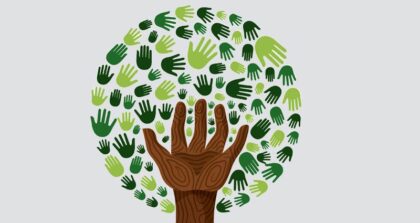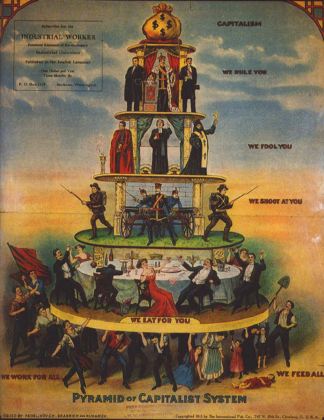
Description
Welcome to Social Enterprise Development and Social Entrepreneurship
Course Information
Day/Time: Sunday, 9am – 5PM
January 15th
February 12
March 12
April 16
Office Hours: Sunday after class, Monday 5:30 – 7PM or Friday, 2:30 – 4PM (by request only)
Classroom: H 527 SGW
Monthly Lessons
Important Dates
Last day to register: Monday, January 23, 2023
Last day to withdraw (refund): Monday, January 23, 2023
Last day to discontinue (no refund): Tuesday, April 18, 2023
Last day of in-class testing: Thursday, April 6, 2023
Final exams: April 20- May 2, 2023
Territorial Acknowledgement
I acknowledge that Concordia University is located on unceded Indigenous lands. The Kanien’kehá:ka Nation is recognized as the custodians of the lands and waters on which we gather today. Tiohtiá:ke/Montreal is historically known as a gathering place for many First Nations. Today, it is home to a diverse population of Indigenous and other peoples. We respect the continued connections with the past, present and future in our ongoing relationships with Indigenous and other peoples within the Montreal community. (Indigenous Directions Leadership Group, Feb. 16, 2017)
Course Description from Graduate Calendar
This course provides a framework for business development within a CED perspective. Basic tools for enterprise development, including comprehensive business planning, data evaluation, financial analysis, and forecasting are to be integrated into a social and ethical framework to maintain the democratic objectives of CED. Students develop skills in evaluating a successful commercial venture within the context of these larger objectives. Ce cours propose un cadre de référence pour le développement d’entreprises selon une perspective de DÉC. Des outils de base pour le développement d’entreprises, incluant le développement de plans d’affaires complets, l’évaluation de données, l’analyse financière et l’élaboration de prévisions, seront intégrés dans un cadre social et éthique afin de préserver les objectifs démocratiques du DÉC. Les étudiant-e-s développent les compétences requises afin d’évaluer le succès d’une entreprise commerciale en tenant compte du contexte global de ces objectifs.
Learning Outcomes
By the end of the course, students should be able to…
- Critically analyze the role of social enterprise in creating alternative
- Understand how to start a social economy enterprise
- Perform financial assessments of social enterprises
- Create a business plan for a social economy enterprise
- Locate potential funding agencies to begin a social enterprise
- Differentiate between different models of social enterprises and collective labour
- Understand social justice and decolonial perspectives in social enterprise
- Map a diverse economy
- Describe case-studies about successful social enterprises
- Take anti-capitalist perspectives in understanding social economy
- Evaluate diverse labour, finances, transactions, property and enterprises
- Understand strengths and limitations in social economy
- Develop ethical frameworks to guide social enterprise development
- Understand multiple forms of value and how social economy can be used to create positive community value
- Recount the history of social economy in Quebec and Canada
Instructional Method
This course will be given in person and run as a seminar. Each class will begin with a short lecture and discussion led by Erik Chevrier, Ph.D. He will introduce themes, provide additional examples and/or offer critical perspectives related to the weekly topics but not covered in the readings. Beginning February 12th, students will each lead two 20 – 30-minute seminar by providing a presentation and facilitating a discussion. All students are expected to read the required texts before class and engage with each other through interactive activities and critical discussions. Students will be encouraged to perform community-campus engagement, community-service learning, experiential-learning and/or action-research for their course project. However, students can also opt for a literature review or another type of research project.
Required Course Materials
Students are required to complete the weekly readings before coming to class. All the books and articles have been reserved as an e-copy to be available online at the Concordia Library.
Regenerative Enterprise: Optimizing for Multi-Capital Abundance
Innovation and the Social Economy: The Quebec Experience
The Problem Solver’s Companion: A Practitioners Guide to Starting a Social Enterprise in Canada
Understanding the Social Economy: A Canadian Perspective
Course Description
Current capitalist crises are affecting people worldwide. In pursuit of profit maximization, corporations across the world are externalizing environmental, social and economic costs. Externalizing costs has led to climate crises, economic instability, extreme inequality, poverty, and political conflict, among many other negative consequences.
In this course, we look at social enterprise development and social innovation as a way to solve some of these crises; to transform our economy and create positive values in the world, ones that are beneficial to people and the planet. In this course, we take a theoretical approach by exploring contemporary literature on social value creation, social innovation and social economy. Students read and discuss a variety of book chapters, articles, and other sources. We also take a practical approach by creating community value. Students are encouraged to start a social enterprise of their own, participate with one that already exists and/or write a case study about a social enterprise in Montreal.
This course provides students with the tools to navigate the Community Economic Development Sector in Montreal. Students learn about writing a social enterprise business plan, reading financial statements for social enterprises, practicing socially responsible investing, getting social economy grants and start-up funds, types of legal structures for social enterprises, and creating bylaws and constitutions for social enterprises. Students also learn about the organizations that promote, fund, and support the social economy sector in Montreal.
Students also take a critical approach by reflecting on contradictions, limitations, and negative consequences arising from the social economy sector.
Week | Date | Description | Assignments and/or Readings Due |
1 | January 15 | Introduction to Social Economy and Social Innovation | Roland, E., Landua, G. (2013) Regenerative Enterprise: Optimizing for Multi-Capital Abundance |
2 | February 12 | Models of Social Economy and Tools for Social Innovation |
Student-Led Seminar Students will each choose one chapter to present |
3 | March 12 | Social Economy in Practice | Reading Report and Interview Presentation Students will each choose one chapter to present |
4 | April 16 | Project Presentations and Wrap-Up | The Problem Solver’s Companion: A Practitioners Guide to Starting a Social Enterprise in Canada |
Assignments
Participation: The participation grade is based on attendance, involvement in discussions, participation in classroom activities, supplemental tasks and completing the readings.
Final Project: Students choose one of three projects.
1 – Students may start a social enterprise of their own. In creating a social enterprise, students must write a business plan and create a constitution.
2 – Students may work with a social enterprise that already exists. In working with a social enterprise, students must write a case-study about the organization looking at governance, labour, economic practices, value production, needs and assets evaluation, and/or finance.
3 – Students may perform another project, like a mapping project of social economy enterprises in Montreal; volunteer with an emerging social enterprise, then write an auto-ethnography; or a literature review about emerging topics in a social economy or social innovation.
Student-led Seminar and Reading Report: On February 12, students will lead a seminar by reading a chapter from the required material, preparing a presentation, and facilitating a discussion. Students will present for about 30 min each. On March 12th, students will read a chapter from the required material, submit a reading report, and will engage in a classroom discussion about the readings. They will be evaluated on their ability to identify the central claim(s) or thesis(es) of the texts and articulate it (them) in their own words, synthesize the readings in a clear, informative manner, answer one of the weekly seminar questions, lead a discussion about the readings and provide examples and/or case studies that support or contradict the arguments put forth in the chapter(s) they are presenting. Students must also submit a paper copy of their presentation and/or PowerPoint slides for February 12th and a reading report for March 12th.
Interview and Presentation: Interview a social entrepreneur and write a research report summarizing the interview. The interview should address the reason why the interviewee works in social economy, the organization/project they are working with and lessons they have learned by starting (or working with) the social enterprise or social innovation project.
Course Assignments and Grade Allocation
Name of Assignment | Due Date | % of final grade |
Participation | Ongoing | 10 |
Interview Report and Presentation | March 12 | 20 |
Final Project: Social Enterprise Business Plan, Case Study, or Project Report | April 16 | 30 |
Course Assignments and Grade Allocation
Name of Assignment | Due Date | % of final grade |
Participation | Ongoing | 10 |
Interview Report and Presentation | March 12 | 20 |
Student-Led Seminar and Presentation Slides | February 12 | 20 |
Reading Report | March 12 | 20 |
Final Project: Social Enterprise Business Plan, Case Study, or Project Report | April 16 | 30 |
Grading System
Grade | Corresponding percentages (GPE) |
A+ | 90-100 |
A | 85-89 |
A- | 80-84 |
B+ | 77-79 |
B | 73-76 |
B- | 70-72 |
C | 60-69 |
F | 0-59 |
Pass/ Fail |
|
F/ABS | Fail/Absent |
IP | In Progress |
Extraordinary Circumstances
In the event of extraordinary circumstances and pursuant to the Academic Regulations, the University may modify the delivery, content, structure, forum, location and/or evaluation scheme. In the event of such extraordinary circumstances, students will be informed of the changes.
Class Cancellation
Classes are officially considered cancelled if an instructor is 15 minutes late for a 50-minute class, 20 minutes late for a 75-minute class, or 30 minutes late for longer classes.
Intellectual Property
Content belonging to instructors shared in online courses, including, but not limited to, online lectures, course notes, and video recordings of classes remain the intellectual property of the faculty member. It may not be distributed, published or broadcast, in whole or in part, without the express permission of the faculty member. Students are also forbidden to use their own means of recording any elements of an online class or lecture without express permission of the instructor. Any unauthorized sharing of course content may constitute a breach of the Academic Code of Conduct and/or the Code of Rights and Responsibilities. As specified in the Policy on Intellectual Property, the University does not claim any ownership of or interest in any student IP. All university members retain copyright over their work.
Behaviour
All individuals participating in courses are expected to be professional and constructive throughout the course, including in their communications.
Concordia students are subject to the Code of Rights and Responsibilities which applies both when students are physically and virtually engaged in any University activity, including classes, seminars, meetings, etc. Students engaged in University activities must respect this Code when engaging with any members of the Concordia community, including faculty, staff, and students, whether such interactions are verbal or in writing, face to face or online/virtual. Failing to comply with the Code may result in charges and sanctions, as outlined in the Code.
Academic Integrity
Academic integrity means that every student must be honest and accurate in their work. The Academic Code of Conduct includes rules and regulations students must follow. Unacceptable practices include the following
- Copy from ANYWHERE without saying from where it came.
- Omit quotation marks for direct quotations.
- Let another student copy your work and then submit it as his/her own.
- Hand in the same assignment in more than one class without permission.
- Have unauthorized material in an exam, such as cheat sheets, or crib notes. YOU DON’T HAVE TO BE CAUGHT USING THEM – JUST HAVING THEM WILL GET YOU INTO TROUBLE!
- Copy from someone else’s exam.
- Communicate with another student during an exam by talking or using some form of signals.
- Add or remove pages from an examination booklet or take the booklet out of an exam room.
- Get hold of or steal an exam or assignment answers or questions.
- Write a test or exam for someone else or have someone write it for you.
- Hand in false documents such as medical notes, transcript or record.
- Falsify data or research results.
PLAGIARISM: The most common offense under the Academic Code of Conduct (see link below) is plagiarism, which the Code defines as “the presentation of the work of another person as one’s own or without proper acknowledgement.”
This could be material copied word for word from books, journals, internet sites, professor’s course notes, etc. It could be material that is paraphrased but closely resembles the original source. It could be the work of a fellow student, such as an answer on a quiz, data for a lab report, or a paper or assignment completed by another student. It could be a paper purchased through one of the many available sources. Plagiarism does not refer to words alone. It can also refer to copying images, graphs, tables, and ideas. Plagiarism is not limited to written work. It also applies to oral presentations, computer assignments and artistic works. Finally, if you translate the work of another person into French or English and do not cite the source, this is also plagiarism. In simple words: DO NOT COPY, PARAPHRASE OR TRANSLATE ANYTHING FROM ANYWHERE WITHOUT SAYING FROM WHERE YOU OBTAINED IT!
Take care to inform yourself of the rules, regulations and expectations for academic integrity.




